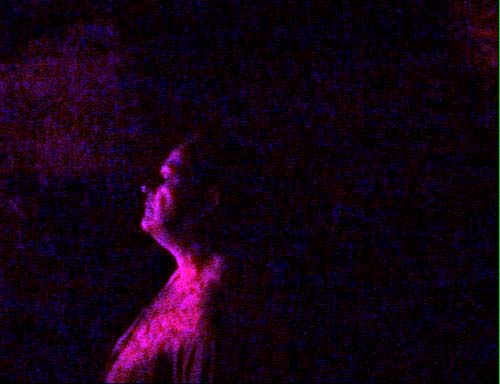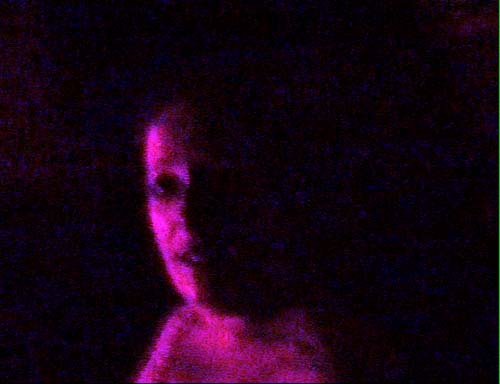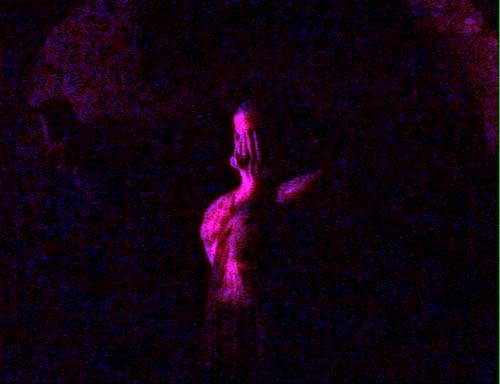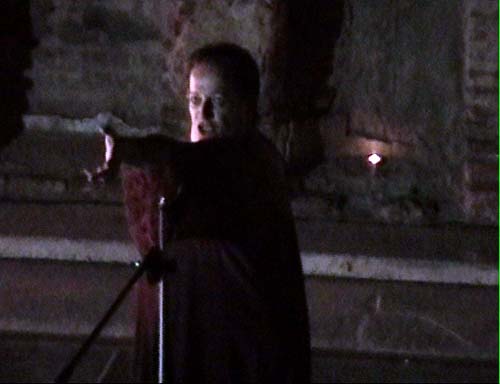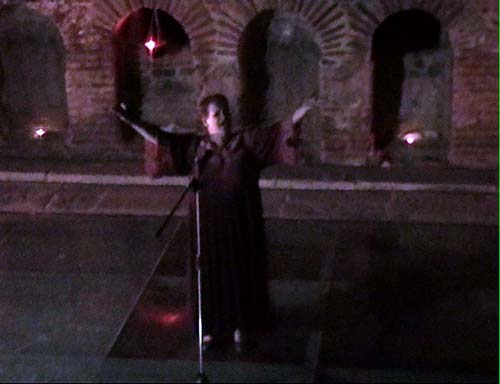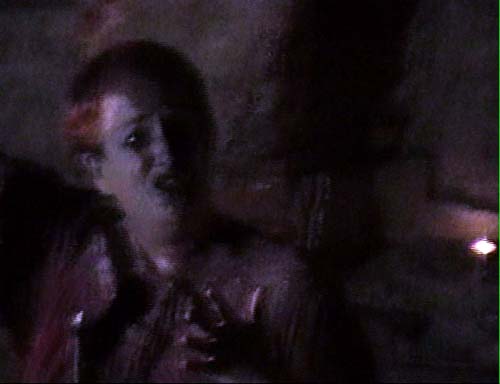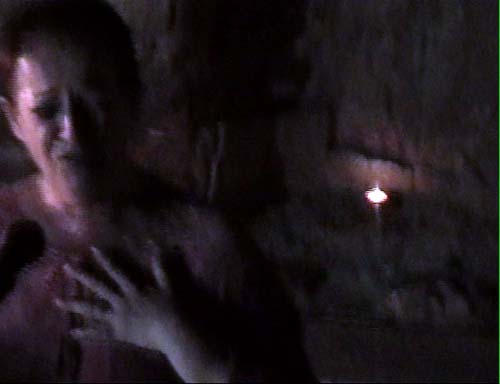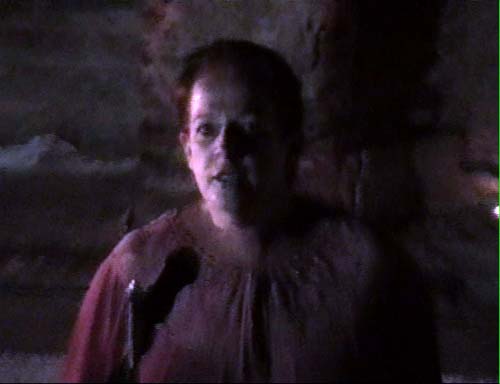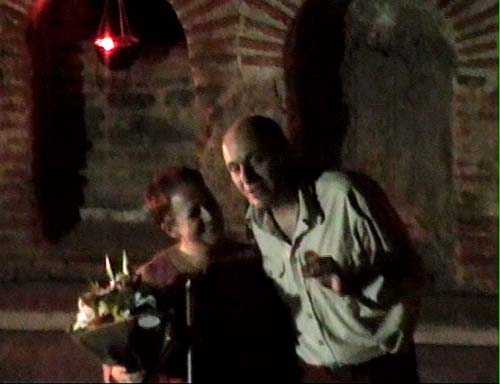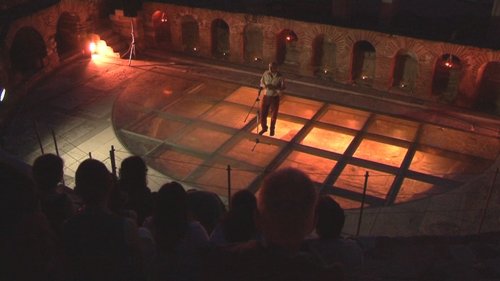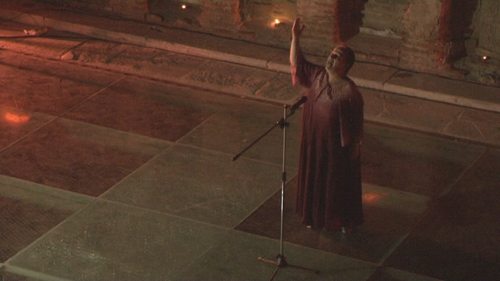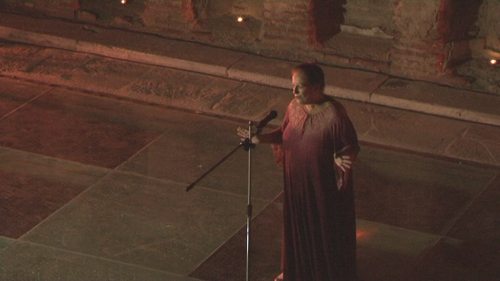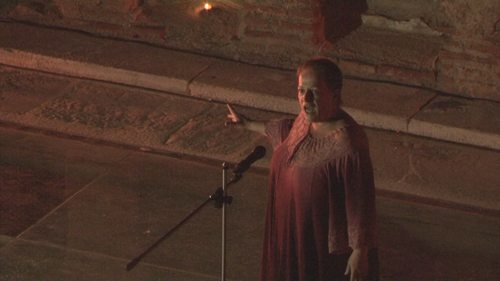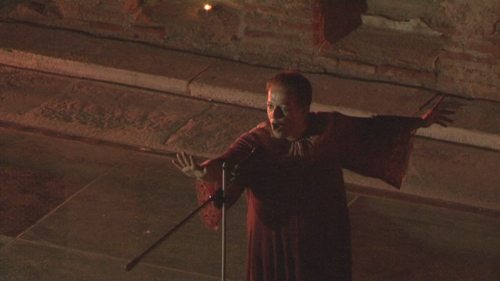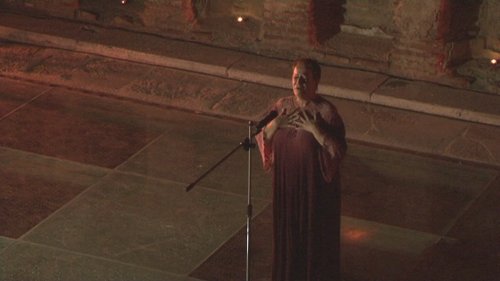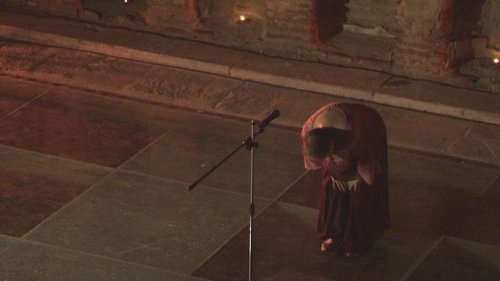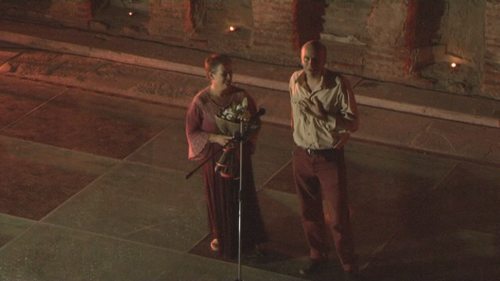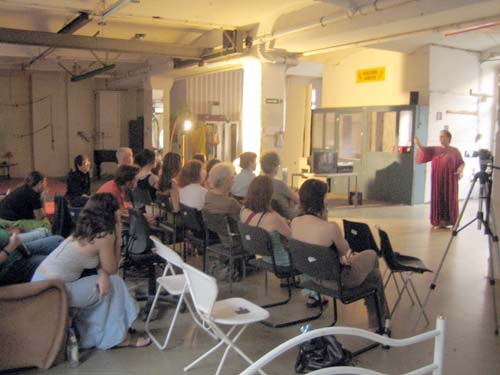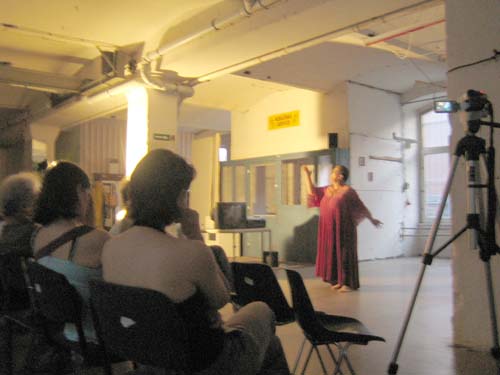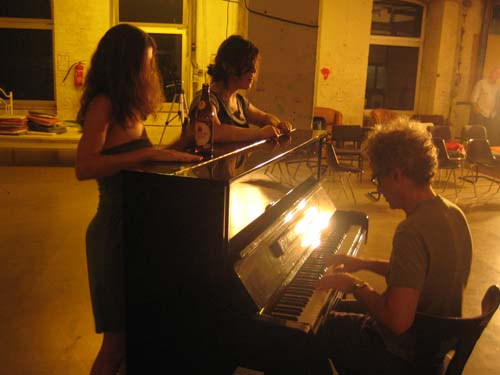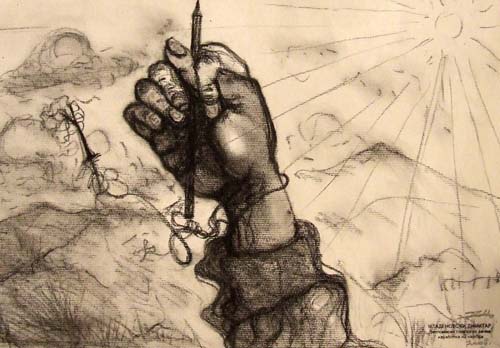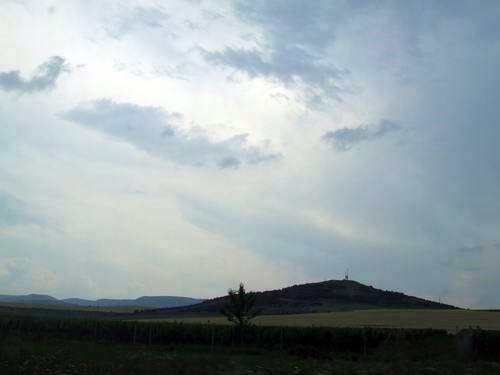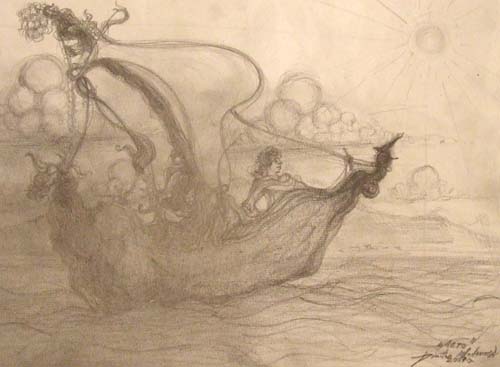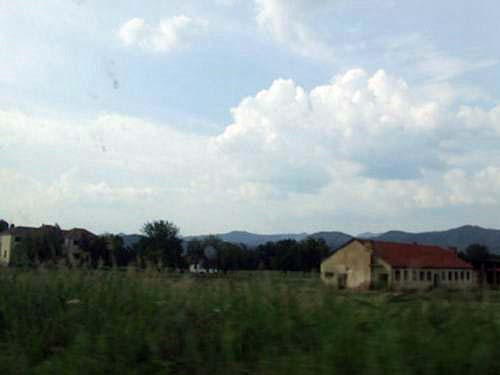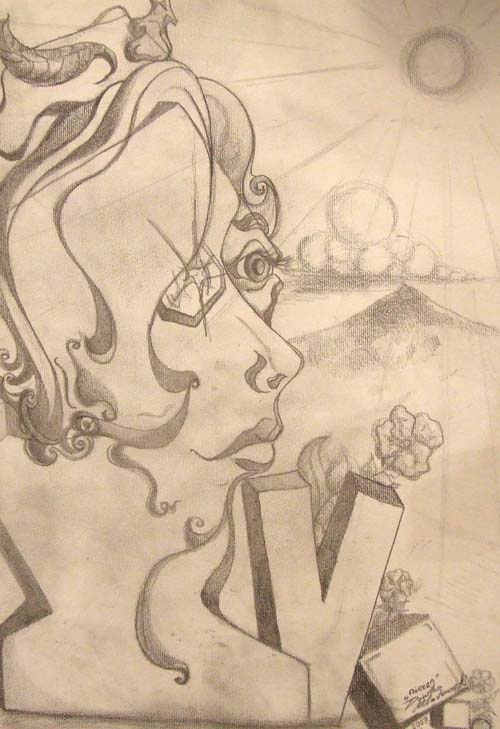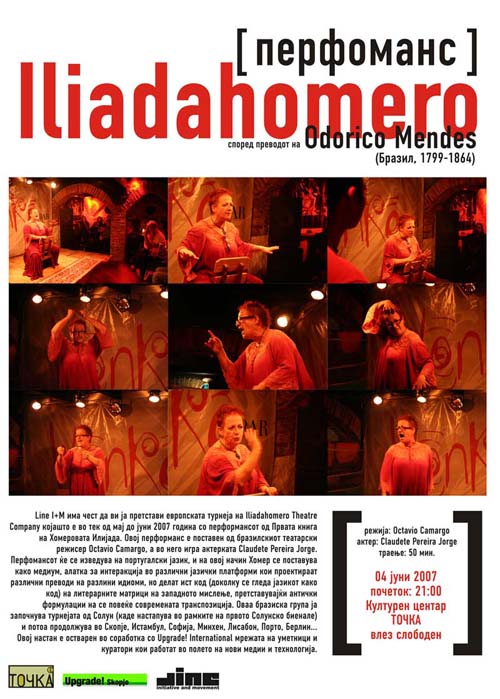claudete
Iliada Canto 1 / Claudete Pereira Jorge / Roman Agora / 1st Art Biennale of Thessaloniki / 01-06-2007
Upgrade_Berlin / Iliadahomero / Studiob�¼hne / 08-06-2007
As apresentações de Claudete Pereira Jorge do Canto 1 da Ilíada, na tradução de Odorico Mendes, nas cidades de Skopje, Atenas e Berlin, foram agendadas através da colaboração entre o Upgrade Berlin, a Orquestra Organismo e o Grupo Reconstruction. Em Berlin, a performance aconteceu no Studiobühne, no bairro de Kreuzberg.
Esta convergencia foi possível atraves do trabalho de rede de pesquisadores de tecnologias livres no Brasil e do Upgrade Internacional, na busca de formas autonomas de gestão de intercambios culturais, possibilitando o surgimento de novas amizades. Segue o documento inicial deste network
Hi everyone,
This is quite a long email, It intends to be a documentation and a first route of ideas generated by the conversations with Ela Kagel and Horst Konietsny, here in Berlin. The idea is to create interfaces and links around the collective works of Upgrade (http://www.theupgrade.net/), Orquestra Organismo (www.organismo.art.br/blog) desCentro (www.pub.descentro.org) and Surface Tension (www.errantbodies.org)
As a first step to the idea of residences, both in Brazil and in Europe, we could start connecting some artistic rituals through digital technology in the web. This would bring a closer interaction straight away among the Upgrades, with the use of structures that are already at hand. It may also be a way of finding ressonances among people, putting them in contact, and identfying the specific fields of collaboration.
I see a similarity between the project of mobile-studios (http://mobile-studios.org/), by Ela kagel, the MimoSa (http://turbulence.org/Works/mimoSa/), by Ricardo Ruiz, and Jose Balbino’s idea of Building a house for residences in Arembepe, Bahia (http://midiatatica.org/upgrade/mar2629.html ).
I can also see relations of these moving structures for art in the recent piece by Brandon Labelle “Dirty Ear Recordings” in ST_Copenhagen (http://errantbodies.org/st_cphlabelle.html
and http://hackeandocatatau.arquiviagem.net/?p=1865) and in the research that took place in Curitiba (http://hackeandocatatau.arquiviagem.net/?p=1474 and http://hackeandocatatau.arquiviagem.net/?p=1458) of the waste cycle for paper collectors (http://errantbodies.org/activecirculation.html and http://hackeandocatatau.arquiviagem.net/?p=426), no place like home, and eiXos (http://hackeandocatatau.arquiviagem.net/index.php?s=axis } These actions meet in the idea of recycling of technology through creative production
The relation between “mobile and fixed stations for art” meet in the specific aspect of colaborative development. A very curious historical link towards this attitude is the work of the polish artist Bruno Lechowski and his passage through curitiba in 1925 with his Cineton (a moving structure for art exhibitions that traveled around Brazil in the 20s) – : http://hackeandocatatau.arquiviagem.net/?p=602“cooking with pure data”, (http://errantbodies.org/st_cooking_pure_data.html)is a web interactive action that was first performed in a Surface Tension event in Curitiba, 2006, by orquestra organismo, (http://errantbodies.org/st_insertions_curitiba_vh.html) and then in Barcelona, in the same year (http://www.hangar.org/ and
http://www.estudiolivre.org/el-gallery_view.php?arquivoId=1764).
(People are invited to come for a meal in someone’s home or in a galery. The
lights in the space,blenders,and other eletrical equipments are online to be turned on and off from the web, creating an interactive cooking jam. In the action “garden of volts”, lemons are linked by cobber wires to produce electricity, which is transformed in sound waves through pd. (this creates a musical instrument out of squashing lemons, demistifying the means of producion of eletrical energy)http://www.estudiolivre.org/el-gallery_view.php?arquivoId=1764
There are also plataforms for immediate exchange of collective work. The blog of orquestra organismo “Hackeando Catatau” has a wordpress template which is completely open for collaboration. Anyone can register and it has inputs from many different parts of the world.
desCentro’s web site (http://pub.descentro.org/) is also an important meeting point for open source actions in Brazil and abroad.
The Orquestra Organismo has just made an event in Curitiba in April, 2007.
The documentation can be found at the web site of the event
(http://conserto.organismo.art.br) The exhibition had a close relation with Upgrade Salvador and the ongoing Croat research of free open source in brazil { http://www.uke.hr/brazil/}Another possibility for immediate collaboration and a larger connection of upgrade is the Iliadahomero project – sharing the code of the matrixes of the occidental languages to a larger public –
It is thoroughly documented at ( http://hackeandocatatau.arquiviagem.net/?p=1863)
The Iliadahomero Theatre Company was invited to present the performance of the book 1 of the iliad (a 50 minutes performance with Claudete Pereira Jorge) at the oppening of the participation of the PPC_T/Farkadona at the 1st Art Biennele of Thessaloniki. The invitation came from the Coordenator of PPC_T/Farkadonna, Hariklia Hari. This could also generate a series of performances in the cities that are linked to Upgrade in our way back to Brazil (first week of June 2007).Well, I think it is already quite a lot! Hope this effort can bring good perpectives for everybody to meet new friends.
best for all
Yours,Octavio
Na perforrmance no Studiobühne, a presença dos amigos reidentes em Berlin: Os compositores Chico Mello e Laura Mello, e a atriz Fernanda Farah
Macedonia – Canto 1
Amasing landscapes of the mountains in the way to Skopje. The drawings of Dimitri, a new friend we made during the performance, shows three important aspects of the culture: The will for expression, through art and writting; the sea and navigation, which is out of reach; and the Victory, acompanied by the sun, the national symbol of Macedonia
